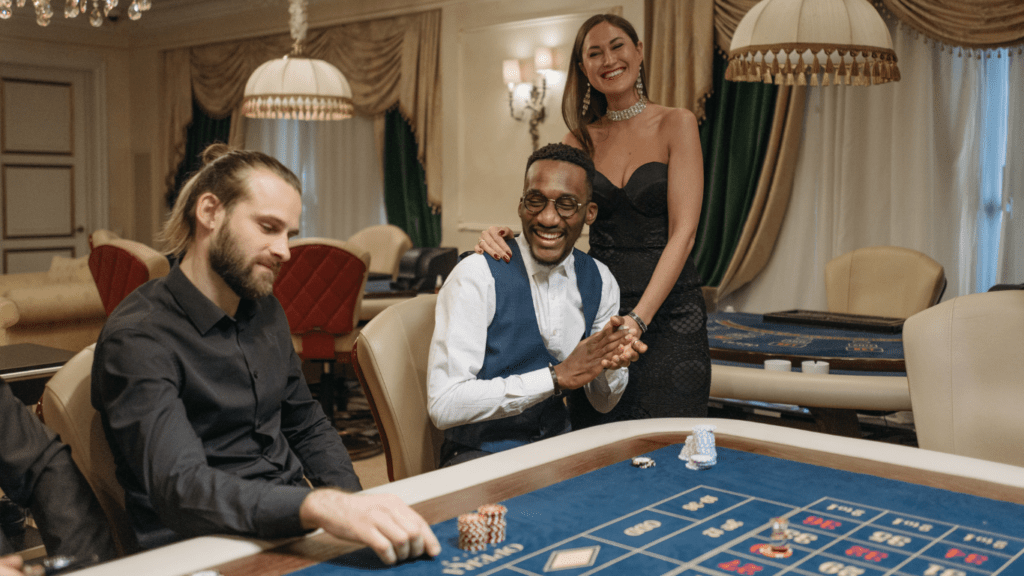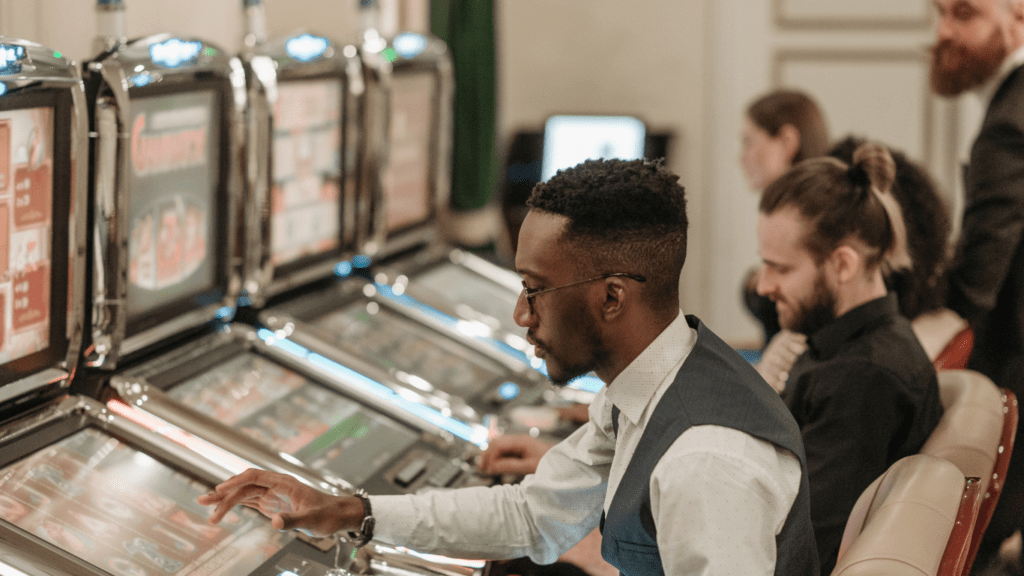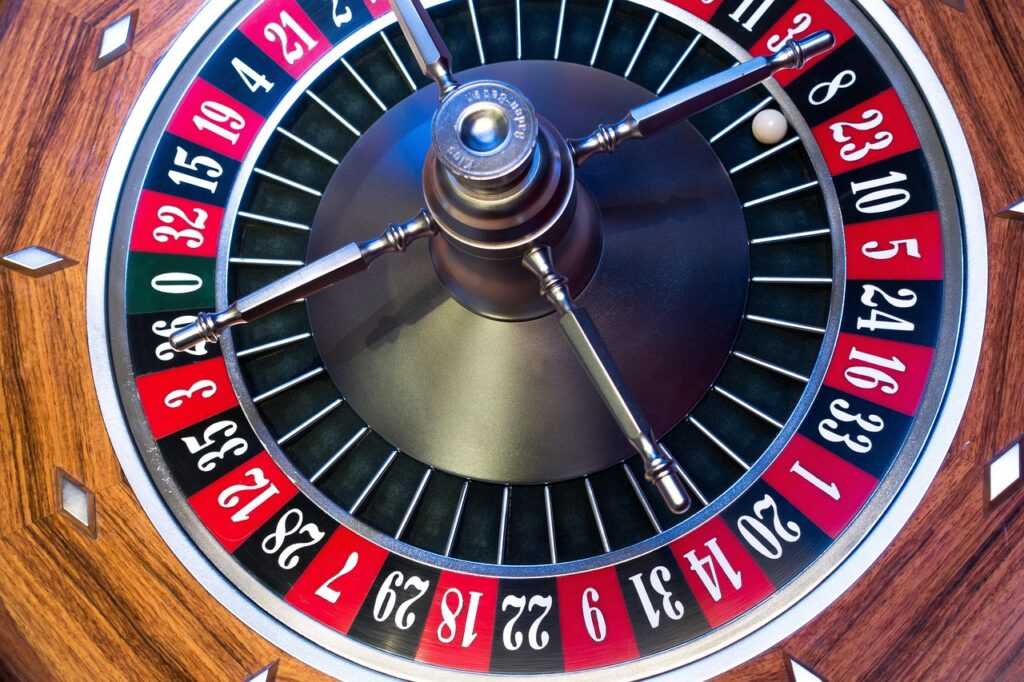The Appeal of Gambling
The thrill of gambling captivates many by offering the promise of rewards coupled with the excitement of uncertainty. People often find the unpredictable nature of games like poker or roulette enticing. Rewards, including monetary gain and social recognition, have strong motivational appeal.
Uncertainty and Risk
The inherent uncertainty in gambling stimulates the brain’s reward system. Dopamine release occurs not only when winning but also during anticipation. This chemical process creates a sense of pleasure and keeps individuals engaged in the activity. Unpredictable outcomes and near-wins further enhance this effect.
Social Interaction
Casinos, online platforms, and betting venues provide social interactions that attract players. Sharing experiences, competing with others, and forming friendships contribute to the appeal of gambling. The communal aspect of gambling offers a break from routine, drawing people towards these activities.
Cognitive Biases
Cognitive biases also play a role in gambling’s appeal. The “gambler’s fallacy,” where one believes that past events affect future outcomes, and the “illusion of control,” where individuals think they can influence random events, make gambling seem more conquerable. These biases create a compelling, though often misleading, sense of control over the game.
Escape from Reality
Gambling offers an escape from daily stresses and routine. The immersive environment of casinos and online platforms allows individuals to focus solely on the game. This mental break from reality becomes a significant appeal, providing a temporary relief and sense of freedom.
Varied Gambling Experiences
Different types of gambling activities cater to varied preferences. While some enjoy skill-based games like poker, others prefer luck-based games like slot machines or lottery tickets. This variety ensures that there’s something for everyone, expanding gambling’s appeal.
In combining reward anticipation, social aspects, cognitive biases, and escape from reality, gambling effectively attracts diverse groups of people.
The Role of Dopamine
Dopamine plays a crucial role in why gambling is enticing. It operates within the brain’s reward system, impacting how we perceive and pursue rewards.
The Brain’s Reward System
The brain’s reward system comprises structures like:
- tnucleus accumbens
- amygdala
- prefrontal cortex
When engaging in pleasurable activities such as gambling, these areas release dopamine, reinforcing the behavior. This release creates a feeling of euphoria and satisfaction, motivating individuals to repeat the action. For frequent gamblers, this reinforcement builds a cycle of desire and reward.
How Dopamine Influences Risk-Taking
Dopamine impacts decision-making by enhancing our perception of potential rewards. High levels of dopamine amplify the attractiveness of uncertain outcomes, making risky behaviors like gambling more appealing. Research shows that elevated dopamine levels increase novelty-seeking and impulsivity, two traits prevalent in gamblers. This chemical reaction clouds judgment, leading individuals to focus on potential wins, often overlooking the risks involved.
The Illusion of Control
Gambling can create a false sense of control over random outcomes. This allure can lead people to believe they can influence results, which drives risk-taking behaviors.
The Gambler’s Fallacy
The gambler’s fallacy makes people think past outcomes affect future ones. For example, after several losses, a person might believe a win is “due.” This cognitive bias ignores the independent nature of each event. According to the American Psychological Association, understanding this fallacy doesn’t always prevent its influence.
Superstitions and Rituals
Superstitions and rituals during gambling provide a sense of control. Personal rituals, like wearing a lucky shirt, create an illusion of influencing outcomes. Casinos often encourage these behaviors, reinforcing the player’s belief in their efficacy. Psychology Today notes that these actions can increase confidence, making individuals more likely to engage in risky bets.
The Role of Emotions

Emotions play a critical role in the psychology behind gambling. They often drive the decision to take risks.
Thrill-Seeking and Excitement
Thrill-seeking and excitement are key motivators for many gamblers. The anticipation of a potential win triggers a release of dopamine similar to what one experiences during thrilling activities. This rush creates a euphoric state that individuals find addictive. Specific games like poker and blackjack heighten this sensation because they combine both skill and chance, making the outcome unpredictable and more exciting.
Stress and Coping Mechanisms
Gambling often serves as a coping mechanism for stress. People turn to gambling to escape from everyday pressures, seeking distraction and relief. The temporary thrill from placing bets provides a break from stressors, albeit short-lived. According to the American Psychological Association, stress coping mechanisms vary, but gambling is frequently used as a form of emotional regulation. In stressful situations, individuals might gamble to experience a fleeting sense of control and satisfaction.
Social and Environmental Factors
Social and environmental elements significantly shape gambling behavior. Here’s how these external influences impact why we take risks.
Influence of Friends and Family
Peer pressure and family attitudes strongly influence gambling habits. People often gamble more frequently when those around them do. Social bonds can make risk-taking more appealing and perceived as a norm. Additionally, parents’ gambling behaviors often mirror their children’s habits, creating a generational link in risk-taking activities.
Impact of Advertising and Media
Advertising and media portray gambling as exciting and glamorous. Marketing campaigns emphasize big wins and luxurious lifestyles, making the risk seem worthwhile. Sports betting ads during major events and casino promotions on social media fuel this allure. Media coverage of jackpot winners also reinforces the appeal, enticing more people to take risks they might otherwise avoid.
Potential Negative Consequences
Risk-taking in gambling often leads to negative consequences that can impact various aspects of life. These effects may range from financial distress to deteriorating mental health.
Financial Implications
Gambling can cause significant financial issues. Individuals may spend beyond their means, leading to debt accumulation. For instance, frequent betting on poker or slot machines often depletes savings. Furthermore, chasing losses creates a cycle of financial instability. According to the National Council on Problem Gambling, about 2 million US adults suffer from severe gambling problems.
Mental Health Effects
- Gambling has severe mental health repercussions.
- Depression and anxiety are common among gambling addicts.
- Losses can lead to feelings of worthlessness and hopelessness.
- Studies published in the Journal of Behavioral Addictions highlight increased rates of suicidal thoughts in compulsive gamblers.
- Gambling can strain relationships due to associated stress and deceit, further exacerbating mental health issues.


 Taj Mackinolty – Author
Taj Mackinolty is a seasoned gambling enthusiast and writer at Smart Gamble Land. With a sharp focus on betting systems and winning strategies, Taj delivers clear and actionable content to readers looking to improve their gambling skills. His deep analytical approach and understanding of risk management allow him to break down complex techniques into simple guides. Taj is passionate about helping players gain control over their betting habits and develop a strategic mindset that can lead to long-term success in the casino environment.
Taj Mackinolty – Author
Taj Mackinolty is a seasoned gambling enthusiast and writer at Smart Gamble Land. With a sharp focus on betting systems and winning strategies, Taj delivers clear and actionable content to readers looking to improve their gambling skills. His deep analytical approach and understanding of risk management allow him to break down complex techniques into simple guides. Taj is passionate about helping players gain control over their betting habits and develop a strategic mindset that can lead to long-term success in the casino environment.
